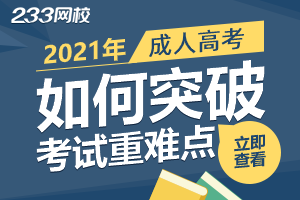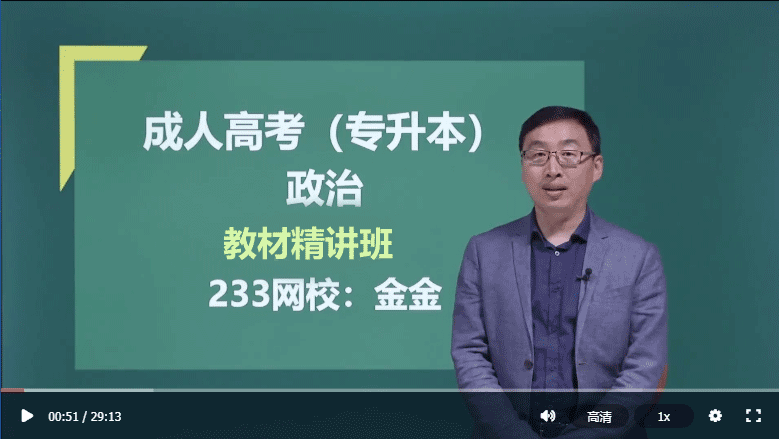цфККхІфНшБшЏшшЏчщЂцхЗЇяМфИяМ
уушЏцБщЂцЏшЏЂщЎцчЋ фИхКчАчцфИЊшЏуцфИЊшЏчЛчшГцфИЊхЅххЋфЙчщЂхух ЖфИцшЏЂщЎчшЏушЏчЛцхЅхяМхОхОфИфИКшчцчцяМфНхшНхЈцфИцОхАчКПчДЂшПшЁцЈцЕяМцфЛЅшПчБЛшщЂцЏцЃцЅшчцЏхІх ЗхЄц ЙцЎфИфИЊшЏушЏчЛцхЅхцхЄччЙхЎчЏхЂцЅхЄцх ЖцфЙчшНху
уушЇЃчшПчБЛшЏщЂцЖяМшчхКщІх цчНяМфЛЛфНшЏцшЏшЏщНфИцЏхЄчЋчяМхЎцхЎфЛЌцхЈчфИфИцхОхОшНцфОщшІччКПчДЂуцфИЊхЎфЙушЇЃщучшГц чЙчЌІхЗух ГшшЏщНхЏфЛЅхИЎхЉшчцЈцЕфИфКшЏцшЏшЏчцфЙяМщЄцЄфЙхЄяМцфЛЌшПхП щЁЛцГЈцццЕшЏчшЏцшЏшЏфИх ЖххфИфКшЏхНЂцчхфЙухфЙухЙЖххцфЛЃчх ГчГЛу
уушПчБЛщЂхИИшЇчцщЎцЙхМцфЛЅфИх чЇяМцЅцКяМwww.examda.com
ууThe word т тІ тin line 5 refers toтІтІтІ
ууThe word ттІ тяМLine 6. para.2яМ most probably means _____.
ууBy ттІ тяМthe author means _____.
ууThe word ттІ тcould best be replaced by which of the followingяМ
ууwhich of the following is nearest in meaning to ттІ тяМ
ууIn para.2яМthe sentence ттІтІ т probably means ттІтІ т
ууцфЛЌфЛЅ2002хЙДщ шЏЛчЌЌфКчЏцчЋ фИКфОяМцЅцКяМwww.examda.com
ууThe market investigation is indispensable to sales promotion. They are closely related as the lips and teethяМ so to speak. What you produce is for sale on the market. It would be impossible to succeed in selling a product without first investigating the market.
ууIn the international marketяМ goods on sale coming from different countries and suppliers are always facing keen competition. Under such circumstancesяМ they will try everything possible to familiarize themselves with the market conditions. In making investigationsяМ we ought to get information about what similar items the competitors are offering on the marketяМ what prices they are quoting яМцЅфЛЗяМяМ what features their products haveяМ who are their regular customersяМ etc. ThenяМ how can we obtain such informationяМ There are many channels that we can make use of in doing this sort of work. The commercial counselor's offices of our embassies stationed abroad can help us in making market investigations. NowadaysяМ our import and export corporations send their trade groups abroad every now and then. One of their purposes is to make market surveys on the spot.
ууCertainlyяМ face-to-face talks with foreign businessmen are also important channels to get market information. The Chinese Export Commodities Fairs and some other fairs of similar nature as well as visits of foreign businessmen provide us with such opportunities. Of course яМ there are some other ways of making market investigations.
ууцчЋ ччЌЌфИщЂцЏшЏцБщЂу
ууThe word тindispensableт in the first line means_____.цЅцКяМwww.examda.com
ууA. impossibleууB. essentialууC. advisableууD. available
уутindispensable тхЈцчЋ чцЎЕчшЁуфЛхЎхщЂчхЅхяМтхИхКшАцЅхфПщчх ГчГЛхАБхчщНПххДхчх ГчГЛфИц ЗчДЇхЏутцЅчхшЏДяМтчфКЇцЏфИКфКщхЎяМхІццВЁцфКх чхИхКшАцЅяМщхЎхАБфИхЏшНцхутхц ЙцЎцчЛчхфИЊщщЁЙяМBяМхП фИхЏхАчяМхП щчухщу
ууфЛЅфИфЛчЛх чЇщшПфИфИццЈцшЏфЙчшЁфЙццчцЙцГуцЅцКяМwww.examda.com
уу1уц чЙчЌІхЗцЏчшЇЃшЏфЙчфИцЁщшІчКПчДЂяМх фИКцфКшЏчхЎфЙцЏщшПц чЙчЌІхЗяМхІч ДцхЗяМцЌхЗяМххЗчцЅхЎцчухІяМ
ууSometimes we work on night shiftтт from 11яМ30 p . m to 7яМ30 a.m
ууфЛч ДцхЗхчшЏДцяМцфЛЌхЏфЛЅцхЎтnight shiftтцЏтхЄчтчццу
уу2уцфКфПЁхЗшЏхІяМis calledяМ meansяМ that isяМ isяМ orяМ define asяМ refer to чщхИИцЏщхЏЙцфИшЏцБчхЎфЙушЇЃщцшЏДцухІяМ
ууOne sort of crimes which particularly worries people is juvenile delinquencyяМthat isяМ crimes committed by young people.
ууфЛthat isчшЇЃщцЅчяМцфЛЌхЏфЛЅцхЎтjuvenile delinquencyтхГ тщхАхЙДчЏчНЊту
уу3уфИОфОхЏфЛЅхИЎхЉцфЛЌчшЇЃшЏфЙухЏЙфКцфКщшІчшЏцБяМфНш хИИхЈшЏхшЊхИІшЇЃщцфОхух цЄяМц ЙцЎфОххЏчхКшЏфЙухІяМ
ууYou may select any of these periodicals яМTime MagazineяМ NewsweekяМ ReaderтВs Digest or The New Yorker.
ууфЛхшОЙхфИОчцЖфЛЃхЈхуцАщЛхЈхчцЕшЁцхяМцфЛЌхЏфЛЅцхЎтperiodicalтхГтцхцхПту
уу4ущ хНЂцххЗЎухЏЙч ЇчшЏцшЏчЛчхКшЏфЙухИИшЇчшПфКшЏцшЏчЛцwhileяМ whereasяМ unlikeяМ butяМ yetяМ althoughяМ howeverяМ in contrastяМ on the other handяМ rather than чухІяМ
ууJane was talking with others while Eliza remained reticent all the time.
ууцчЋ чwhileфНтшяМхДтшЇЃяМчБцЄцфЛЌхЏфЛЅцхЎтreticentтфНтцВщЛхЏЁшЈчтшЇЃу
уу5ухххИИшЏхчЛщЊчцЕшЏфЙухІяМ
ууThe door was so low that I hit my head on the lintel.
уухЊшІфН чЅщso thatшПфИЊчЛцяМхххИИшЏхАБхКчхКтlintelтчцццЏтшПцЂяМфИщЈцЂту
уу6уц ЙцЎцшЏцГцЅчцЕшЏфЙучцшБшЏшЏцБчцшЏцГяМчЙхЋцЏцДОчшЏчцццЙцГхшЏфЙяМхЏфЛЅхИЎхЉцфЛЌхЈщ шЏЛшПчЈфИццхАчцЕшЏфЙяМцщЋщ шЏЛщхКІяМхчЁЎчщЂу
уушчхКчЙхЋцГЈцшБшЏшЏчМчцфКчЙчЙухІяМфИшЌцЅшЏДхчМхЊхЂх ццЙхфИфИЊшЏчцфЙяМфНхЙЖфИцЙхх ЖшЏцЇуфОхІяМsupermarketяМшЖ хИяМяМforetell яМщЂшЈяМяМdissatisfiedяМфИцЛЁцчяМuncomfortablyяМфИшцхАяМчушхчМфИфНхЏфЛЅхЂх ццЙхфИфИЊшЏчцфЙяМшфИцЙхх ЖшЏцЇухІwashableххЈшЏтцДтфИКхНЂхЎЙшЏтхЏцДчтяМnormalizeххНЂхЎЙшЏтцЃхИИчтфИКхЈшЏтфНПтІтІцЃхИИхтяМbeginnerххЈшЏтхМхЇтфИКхшЏтххІш тяМchildlessхчБхшЏтхАхЉтхфИКхНЂхЎЙшЏтц ххЅГчтухЊшІчЅщшЏц ЙчцфЙяМхчцхчМххчМшЁЈчЄКчцфЙяМхАБфИщОхЄцшПфКшЏчшЏфЙу
ууяМ5яМ шЏЂщЎфНш хфНчЎццхКІчхИИшЇцщЎцЙхМхчщЂцхЗЇ
ууфНш чшЏцАцхКІхОхОфИфМчДцЅххЈцчЋ щяМхЊшНщшПчЛшЏЛцчЋ яМфЛфНш чщшЏхх ЖфПЎщЅАццЎЕфИфНфМхКцЅушПчЇщЂххИИшЇчцщЎхНЂхМцяМ
ууThe author seems _____.
ууThe authorтs tone in this passage is _____.
ууThe purpose of the author in writing this passage is _____.
ууThe authorтs intention in writing the passage is to _____.
ууThe writer probably feels that _____.
ууIn the authorтs opinionяМ _____.
уушПчБЛшщЂфИяМшЏЂщЎшЏцАцхКІчщЂяМщцЉщЁЙщхИИхКчАфЛЅфИфИфКщшІчшЏяМsympathetic хц чяМcriticalцЙшЏчяМ doubtfulцччяМobjectiveхЎЂшЇчяМenthusiasticчц чяМmatter-of-factхЎфКцБцЏчяМhostile цхЏЙчяМsatisfiedцЛЁцчяМfriendlyххЅНчяМindifferentхЗцЗЁчяМsubjectiveфИЛшЇчяМoptimisticфЙшЇчяМpessimisticцВшЇчяМdisappointedхЄБцчяМneutralфИчЋчу
уушЏЂщЎхфНчЎччщЂяМщцЉщЁЙщхИИхКчАчшЏцЏяМ
ууexplainшЇЃщяМpersuadeхшЏДяМcommentшЏшЎКяМ
ууcriticizeцЙшЏяМinterestхМшЕЗтІтІчцГЈццх ДшЖЃяМ
ууentertainфНПцЌЂфЙяМargueшОЉшЎКяМdemonstrateфИОфОшЏДцяМчЄКшяМ
ууtellшЎВшПАяМprove шЏцяМurgeцПхЈяМadviseххяМanalyzeхцяМ
ууpraiseшЕцЌяМviewчхО яМччу
ууфОяМ
ууOne bright spot in the U.S. economy in 1979 was the surprising decline in gasoline use. Rising fuel costs are finally prodding Americans to cut back on consumptionяМ and the need for this becomes more acute all the time.
ууцх ГфНш цхКІцшЇчЙчщЎщЂцЏяМ
ууHow does the author view the decline in gas consumptionяМ
ууA. He is indifferent.ууB. He thinks it is a good sign.
ууC. He doesnтt see the need for it.ууD. He is unhappy about it.
ууфНш цтthe decline in gas consumptionтцшПАфИКтone bright spot in the U.S economyтяМхЏшЇчцЁхКшЏЅцЏB.
уущЄфКшІццЁхКцЌчщ шЏЛцЙцГххщЂшЎВхАчхКшЏцхЗЇфЛЅхЄяМшІцГхЈшЇхЎчцЖщДх яМцЂшНхчЁЎхшНхПЋщхАхчхЅНццщЎщЂяМшчшПхКцГЈцфЛЅфИх чЙяМ
уу1ушчхКщхЏЙцчЋ чфИхщЂцхщЂхяМщцЉфИхчщ шЏЛцЙцГуццЖщшІх цЕшЇцчЋ яМхчщЂчЎяМццЖхфИчЖуфНщхИИц хЕфИяМхКщІх чЁЎхЎцчЋ чфИЛцЈцфИЛщЂяМчЖхххЎЁшЏЛщЎщЂухЈчЛхЄЇхЄцАц хЕфИцфЛЌччщЂцЅщЊЄхКшЏЅцЏяМ1яМщЂх хПЋщцЕшЇщЂхЙВхцЏцЎЕщІхЅяМчЁЎхЎхЊфКцЏщчЙхчИх Гх чД яМчЅщцшЎОщЎщЂччБЛхяМххАхПфИццАуяМ2яМхПЋщщ шЏЛцчЋ яМфКшЇЃцчЋ хЄЇцхщчЙяМхАНхПЋцЋцяМшЏЛхАфИхццшЎАфНчфИщЂхЙВцх Гчх хЎЙяМх чЈщ чЌхфКшЎАхЗяМхПЋщхЈчцЁфИщхКфИфИЊфИДцЖчцЁяМчЖхчЛЇчЛщ шЏЛуяМ3яМчЈхПЋщхКІщшЏЛщЎщЂяМцОхКхПфИхЗВчЛцццЁччцЁфНчНЎухщ шЏЛфИщшЏЅцЎЕцх ГццяМхАНхПЋчхЎцццЁчщЎщЂухЏЙщЃфКхАцЊфНччщЂчЎяМхчЈфИшПАцЙцГфИхЃцАщшЏЛфИщцчЋ яМшПцЌЁхКцОхКцДхОЎхІччКПчДЂяМщфИчВОхшЇЃхГщОщЂу
уу2уфИшЌцЅшЏДяМщЄфКфИЛцЈхцЈшЎКхщЂчЎфЛЅхЄяМщЂчЎщЁКхКфИцчЋ чц шххБцЏфИшДчяМх цЄхКцщЂчЎщЁКхКшЇЃщЂу
уу3уцчЋ шОщОцЖяМфИхП чДЇхМ яМц ЙцЎшЏшЈхІчЇчцЕшЏшЇхОяМхІццчЋ щОхщЎщЂцЏшОчЎхухЊшІшНхОхЅНхАхКчЈщ шЏЛцхЗЇяМхАБфИщОцОхАцЃчЁЎчцЁухІхЄяМцчЋ хщПфЙфИфИхЎхАБщОяМх фИКхЈшОщПччЏхЙ фИяМх ЖшЏцБяМхЅхчЛцчхЄцчЈхКІшІчИхЏЙхЎЙцфКу
уу4ущ шЏЛшПчЈфИяМхЏфЛЅхЈцчЋ цщЎщЂцчЉКчНхЄхфКшЎАхЗяМфЙхЏфЛЅхЏЙфИфКфИчщЂцх ГчшЏхЅхчКПушПхЏфЛЅц хКфИфКх ГщЎшЏяМхАЄх ЖцЏцчЋ чшЎКчЙушЎКцЎхфИфКцх ГфКхЎяМфЛЅщПх щхПцхщЁОцЖцЕЊшДЙцЖщДу
уу5ухчщЎщЂцЖфИшНцч ЇфИЊфККчфИЛшЇшцяМхчщЎщЂчц ЙцЎхКшЏЅхЛКчЋхЈщ шЏЛцчЋ чхКчЁфИу
чИх ГцЈш
- 2017хЙДцфККщЋшщЋшЕЗчЙшБшЏшшЏшО хЏМ:фЛшЏчшЏ04-10
- 2017хЙДцфККщЋшщЋшЕЗчЙшБшЏшшЏххЙДчщЂфНцчВОщцБцЛ04-04
- 2017хЙДцфККщЋшщЋшЕЗчЙшБшЏшшЏххЙДчщЂфНцчВОщхфИ04-03
- 2017хЙДцфККщЋшщЋшЕЗчЙшБшЏшшЏххЙДчщЂфНцчВОщхфК04-02
- 2017хЙДцфККщЋшщЋшЕЗчЙшБшЏшшЏххЙДчщЂфНцчВОщхфИ04-01
| ПЮГЬзЈвЕУћГЦ | НВЪІ | дМл/гХЛнМл | УтЗбЬхбщ | БЈУћ |
|---|---|---|---|---|
| гяЮФ(ИпЦ№Еу)ОЋНВАр | ЕЫО§УФ | ЃЄ150 / ЃЄ150 |  |
БЈУћ |
| гЂгя(ИпЦ№Еу)ОЋНВАр | Monica | ЃЄ150 / ЃЄ150 |  |
БЈУћ |
| Ъ§бЇ(ЮФ)ОЋНВАр | ЭѕЗМ | ЃЄ150 / ЃЄ150 |  |
БЈУћ |
| Ъ§бЇ(Рэ)ОЋНВАр | ТогзжЅ | ЃЄ150 / ЃЄ150 |  |
БЈУћ |
| ДѓбЇгяЮФ(зЈЩ§БО)ОЋНВАр | ХЗбєАиСи | ЃЄ150 / ЃЄ150 |  |
БЈУћ |
| гЂгя(зЈЩ§БО)ОЋНВАр | Monica | ЃЄ150 / ЃЄ150 |  |
БЈУћ |
| ИпЕШЪ§бЇ(вЛ)(зЈЩ§БО)ОЋНВАр | ЭѕЬЮ | ЃЄ150 / ЃЄ150 |  |
БЈУћ |
| ИпЕШЪ§бЇ(Жў)(зЈЩ§БО)ОЋНВАр | ТогзжЅ | ЃЄ150 / ЃЄ150 |  |
БЈУћ |
ИЈЕМПЮГЬ
- ИпЦ№Еу-Ъ§бЇ(ЮФЪЗВЦОРр)

- ЭѕЗМРЯЪІ
 УтЗбЪдЬ§
УтЗбЪдЬ§
- ИпЦ№Еу-гЂгя

- MonicaРЯЪІ
 УтЗбЪдЬ§
УтЗбЪдЬ§
- зЈЩ§БО-ДѓбЇгяЮФ

- ХЗбєАиСиРЯЪІ
 УтЗбЪдЬ§
УтЗбЪдЬ§
АрМЖНщЩм
ЬзВЭАќКЌЃКзЈЩ§БОVIPАр/ИпЦ№ЕуVIPАрЃЈКЌОЋНВ+ецЬтНтЮі+ФЃПМЕуЬт)
ЬзВЭгХЪЦЃК1ЁЂЫјЖЈКЫаФПМЕу
2ЁЂПМЧАЗЂЗХ2ЬзЪдЬт
3ЁЂУтЗбжибЇвЛДЮБЃеЯ
ХфЬзЗўЮёЃК1ЁЂУтЗбЬтПт
2ЁЂПЮГЬНВвх+ПЮМўЯТди+вЦЖЏПЮЬУ







 УтЗбЪдЬ§
УтЗбЪдЬ§ 




